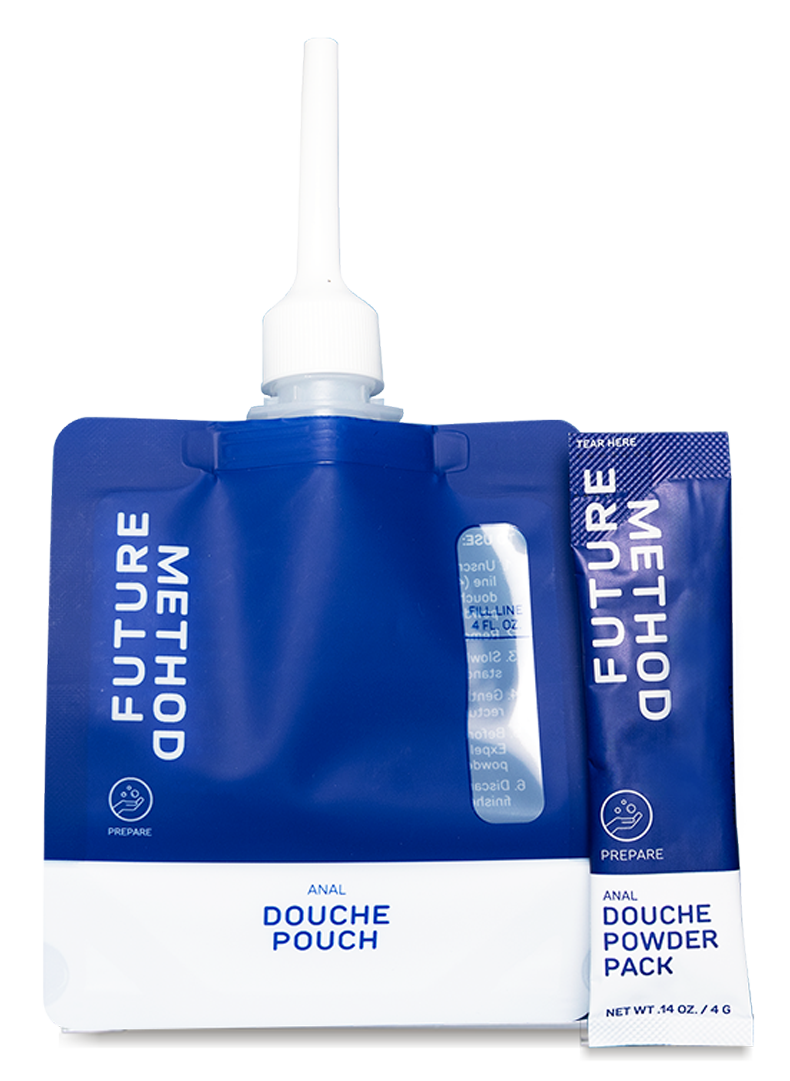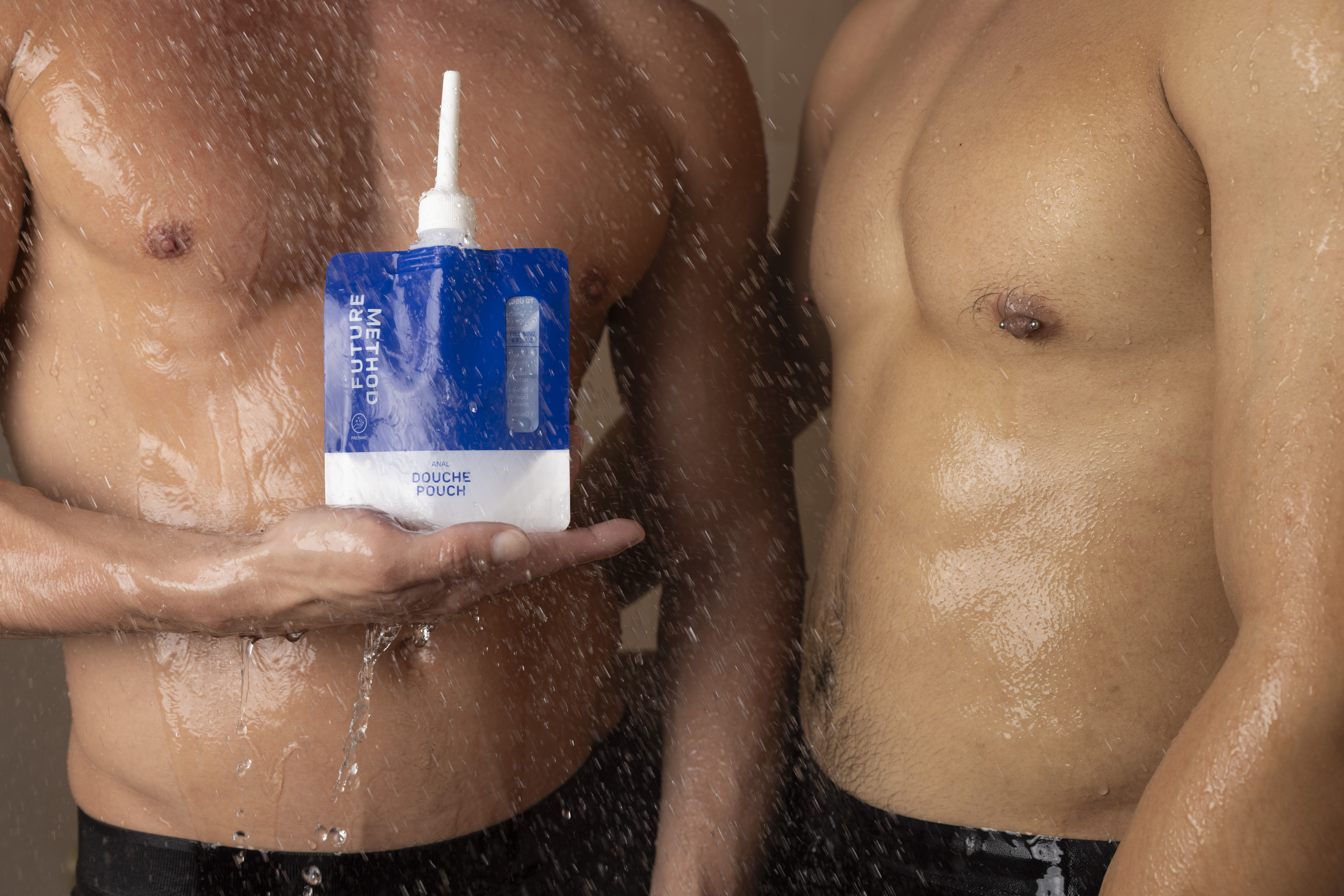Bottom Diet Tips: Learn What to Eat Before Bottoming
Updated on 10/17/2024
It’s often said that we are what we eat. Well, that’s certainly the case when it comes to preparing for bottoming. If you’re interested in making things as clean and quick as possible, here’s where to start.
High-Fiber Foods for a Successful Bottom Diet
First off: a good diet and your body’s natural digestive processes will do most of the cleaning work for you. I recommend that bottoms consume a high-fiber diet or probiotic supplements, along with plenty of water. That way, when you go to the bathroom, your stool is collected together in one smooth, bulky mass. This means you’re able to expel all the contents of your colon in a single movement. If the muscle itself is part of the problem (e.g. they are too tight) – try out our glass anal dilator set, designed by medical professionals to target all three rings of anal musculature and relax them gradually.)
Consciously making fiber (both soluble and insoluble) part of your daily routine means you can get to a point where the most important step of your cleaning regimen is simply using the bathroom and quickly rinsing off. Your body will get rid of mostly everything in a very natural way, without disrupting the pH balance of your butt. If you’re still worried about potential residue, I recommend a quick “rinse” using bulb irrigation and Future Method Cleansing Solution, which is a pH balanced isotonic solution so it leaves the delicate balance of your microbiome in tact.

PLAY WITH CONFIDENCE
It's all in the science - get yours today.
Food for bottoms to avoid
If you plan on bottoming, try to avoid eating processed foods, artificial sweeteners, fermented dairy products, spicy foods, and oily/greasy foods, as these tend to be irritable to the gastrointestinal tract and can lead to rapid transit (i.e. diarrhea).
For ‘irritable bowel bottoms’, I don’t have any clear answers, unfortunately. There are some new meds to help, or a lot of people are using CBD. The key is to truly understand what causes a flare up and plan accordingly if playtime is on the horizon.
Misconceptions About Bottoming:
- Starving Myth: The misconception that starving oneself helps avoid a mess is not only harmful but also counterproductive. Skipping meals can lead to overeating later, disrupting the body’s metabolism and creating more health issues rather than solving them. Instead of starving, mindful eating and balanced nutrition are key to maintaining a healthy lifestyle without causing unnecessary harm to the body.
- Diet Timing: Maintaining a bottom-friendly diet and proper douching can significantly enhance comfort and readiness for extended periods, sometimes lasting all day. By focusing on a strategic diet a few hours before bottoming, individuals can minimize the risk of gas and bloating, which can lead to a more enjoyable and worry-free experience. This proactive approach helps ensure that the body is prepared, promoting both physical well-being and confidence during intimate moments.
Healthier Alternatives and Supplements:
- Alternative Protein Sources: Plant-based milk and cheeses offer a nutritious and sustainable alternative to traditional dairy products, catering to those with lactose intolerance, dietary preferences, or ethical concerns. These alternatives, made from sources like almonds, soy, oats, and cashews, provide diverse flavors and nutritional profiles, often fortified with vitamins and minerals. As their popularity grows, plant-based options continue to expand, offering consumers greater variety without compromising taste or texture.
- Fermented Foods: Fermented foods like kimchi and probiotic-rich options like yogurt can significantly improve gut health by introducing beneficial bacteria into the digestive system. These foods help restore balance to the gut microbiome, which plays a crucial role in digestion, immunity, and overall well-being. Incorporating them into daily meals supports a healthier digestive environment and can potentially reduce inflammation and digestive discomfort.
FAQs About What To Eat Before Anal
Do I need to starve myself before anal play?
Starving yourself before anal play is neither necessary nor recommended. Maintaining a balanced diet is crucial for keeping your energy levels up and ensuring your digestive system functions properly. Instead of skipping meals, focus on eating light, fiber-rich foods that aid digestion and help keep your system clean.
How far in advance should I start adjusting my diet before anal?
It’s best to start adjusting your diet 24 to 48 hours before anal play. This time frame allows your body to process the foods and prepare your digestive system adequately. During this period, focus on consuming high-fiber foods and staying well-hydrated. High-fiber foods help bulk up your stool, making it easier to pass, while proper hydration supports overall digestive health.
Can I eat meat before anal?
Yes, you can eat meat before anal play, but it’s important to choose the right kind. Lean meats, such as chicken or turkey, are preferable because they are easier to digest and less likely to cause digestive problems. On the other hand, fatty or greasy meats should be avoided as they can lead to discomfort and digestive issues.



